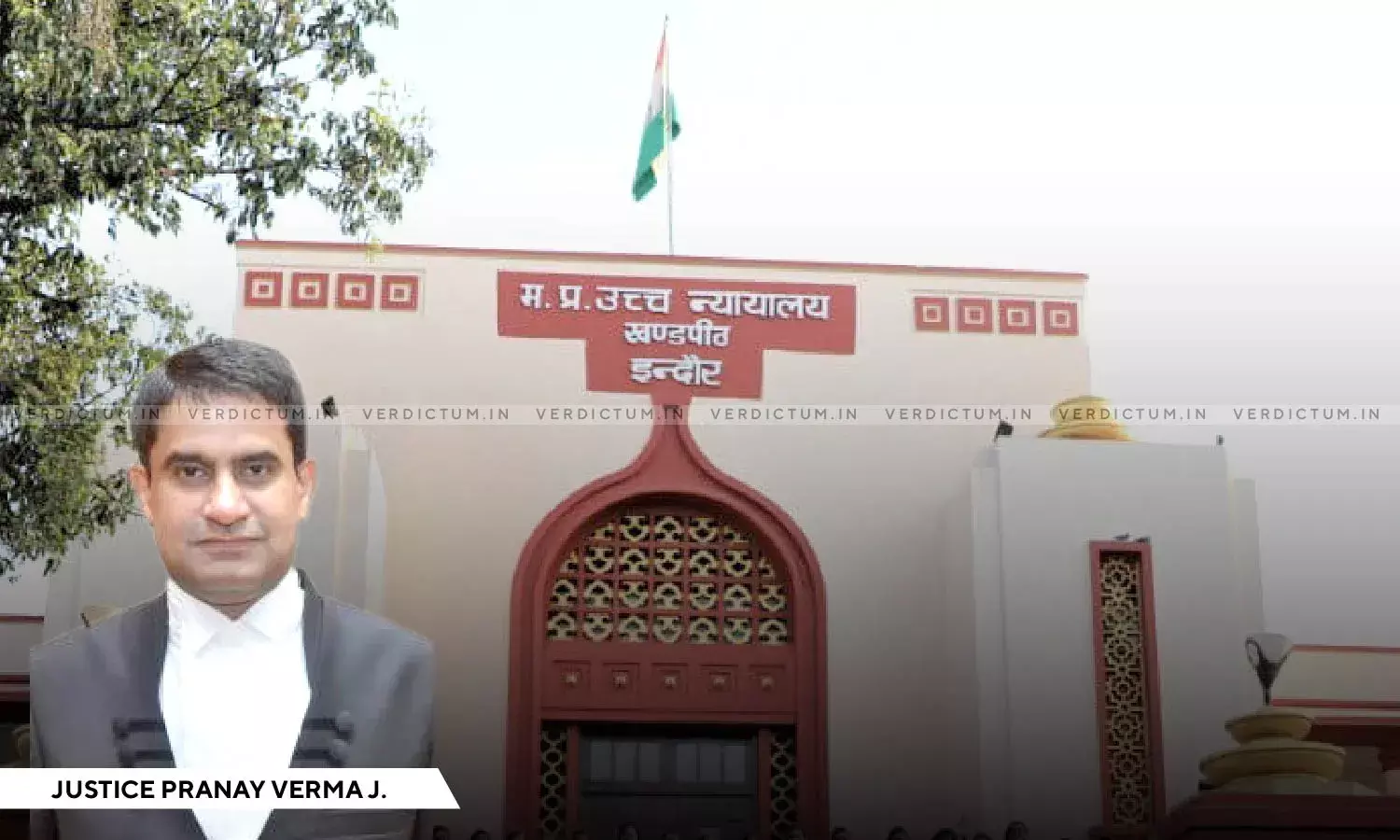Judicial Review In Student Indiscipline Cases Limited To Examining Arbitrariness Or Illegality Of School’s Decision: Madhya Pradesh High Court
The High Court held that in cases involving student indiscipline, courts cannot sit in appeal over the decisions of school authorities, and the scope of judicial review is confined to determining whether such decisions are arbitrary or illegal.

The Madhya Pradesh High Court dismissed a petition challenging the decision of a private school to discontinue a student’s enrolment on disciplinary grounds, holding that the Court’s jurisdiction under Article 226 of the Constitution of India in such matters is limited.
The Court was hearing a writ petition filed by the father of a student seeking directions to set aside the decision of the school management to terminate his ward after he was found involved in acts of indiscipline and misconduct.
A Bench comprising Justice Pranay Verma, while deciding the matter, observed that “since the present is also a case of student indiscipline, power of judicial review is very limited and this Court cannot sit in appeal over decision of the school authorities and the jurisdiction is limited to considering the fact whether the decision taken by the school is arbitrary or illegal.”
Advocate Jayesh Gurnani appeared for the petitioner, while Amit Bhatia, Government Advocate, and Advocate Tarang Chelawat appeared on behalf of the respondents.
Background
The petitioner’s ward, a student of Class 9 in an unaided school affiliated to the ICSE/ISC Board, was alleged to have created a social media page using the school’s name and posted derogatory content about teachers.
The school initiated disciplinary proceedings, during which the student admitted to his actions and tendered a written apology. The school allowed him to appear for final examinations but decided not to continue his enrolment for the next academic session.
The petitioner challenged this decision, arguing that the action violated Article 21-A of the Constitution, the Right of Children to Free and Compulsory Education Act, 2009, and Section 24 of the Juvenile Justice (Care and Protection of Children) Act, 2015, which protects children from disqualification even when found guilty of an offence.
The petitioner further contended that the school had failed to comply with the directions issued by the Madhya Pradesh State Commission for Protection of Child Rights.
The school, in its response, submitted that the disciplinary action was based on serious misconduct, including misuse of teachers’ photographs, communal references, and inappropriate content, arguing that the Commission’s order was merely recommendatory and not binding.
Court’s Observation
The Madhya Pradesh High Court examined the scope of authority of the State Commission for Protection of Child Rights and held that the “Commission is an advisory body and it can frame or suggest policy decisions with respect to child's rights but the Act does not empower the Commission to adjudicate any lis between two parties.”
The Bench stated that the Commission’s recommendations are not binding and that it cannot interfere with matters of internal discipline within schools.
Justice Verma observed that the Juvenile Justice Act, 2015, was inapplicable a well, since no criminal prosecution or finding of guilt existed against the student. The disciplinary action, the Bench held, was taken “on the basis of his indiscipline” and that the school was “well within its rights, hence it cannot be said that any wrong has been done upon petitioner's son.”
Citing Vice-Chancellor, Guru Ghasidas University v. Craig Mcleod, (2012) and Director (Studies) v. Vaibhav Singh Chauhan, (2009), the Court reiterated that the “Principal of the School is its guardian who is vested with powers to take necessary action to maintain the discipline and morality in the school is well recognized proposition of law.”
Quoting the Madras High Court’s decision in V.S. Babaramesh v. CBSE, in which it was held that “a pupil against whom disciplinary action has been taken by the head of an educational institution cannot insist that principles of natural justice should be strictly complied with and there is a substantial difference between an enquiry in a disciplinary action against a civil servant and that in a disciplinary action against a pupil of an educational institution”, the Bench concluded that the scope of Judicial review in such cases is very limited.
The Bench examined the material produced by the school in a sealed cover, noting that it contained content of a highly offensive and derogatory nature targeting teachers, including communal references and inappropriate imagery, holding that “the acts of the petitioner's son cannot be said to be a stray incident.”
Conclusion
Concluding that the disciplinary action taken by the school was justified, the Madhya Pradesh High Court ruled that there was no illegality in the decision not to continue the student’s admission.
Accordingly, the petition was dismissed.
Cause Title: Jitendra Singh v. The State of Madhya Pradesh & Others (Neutral Citation: 2025:MPHC-IND:29500)
Petitioner: Advocate Jayesh Gurnani
Respondents: Amit Bhatia, Government Advocate; Advocate Tarang Chelawat


